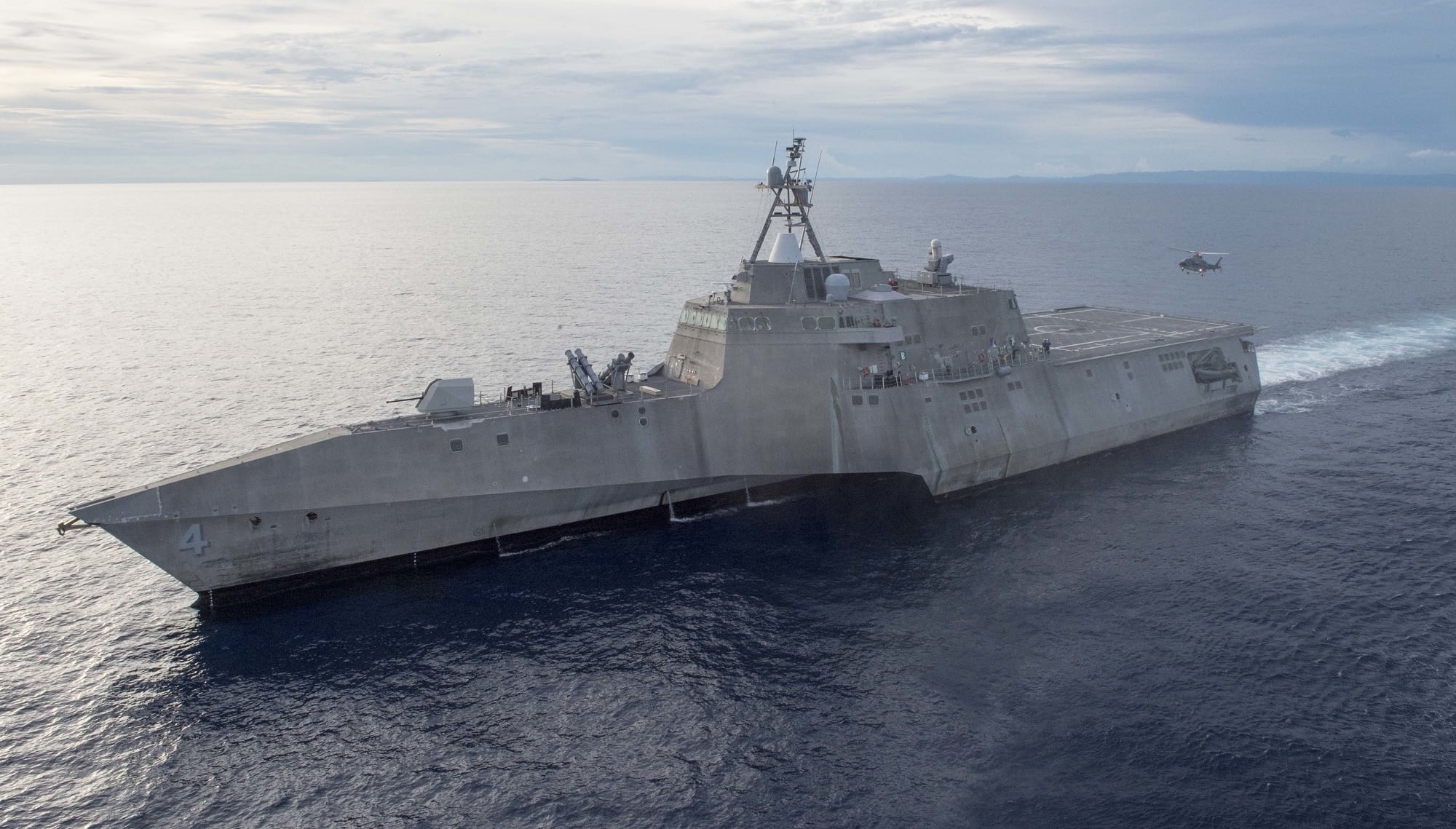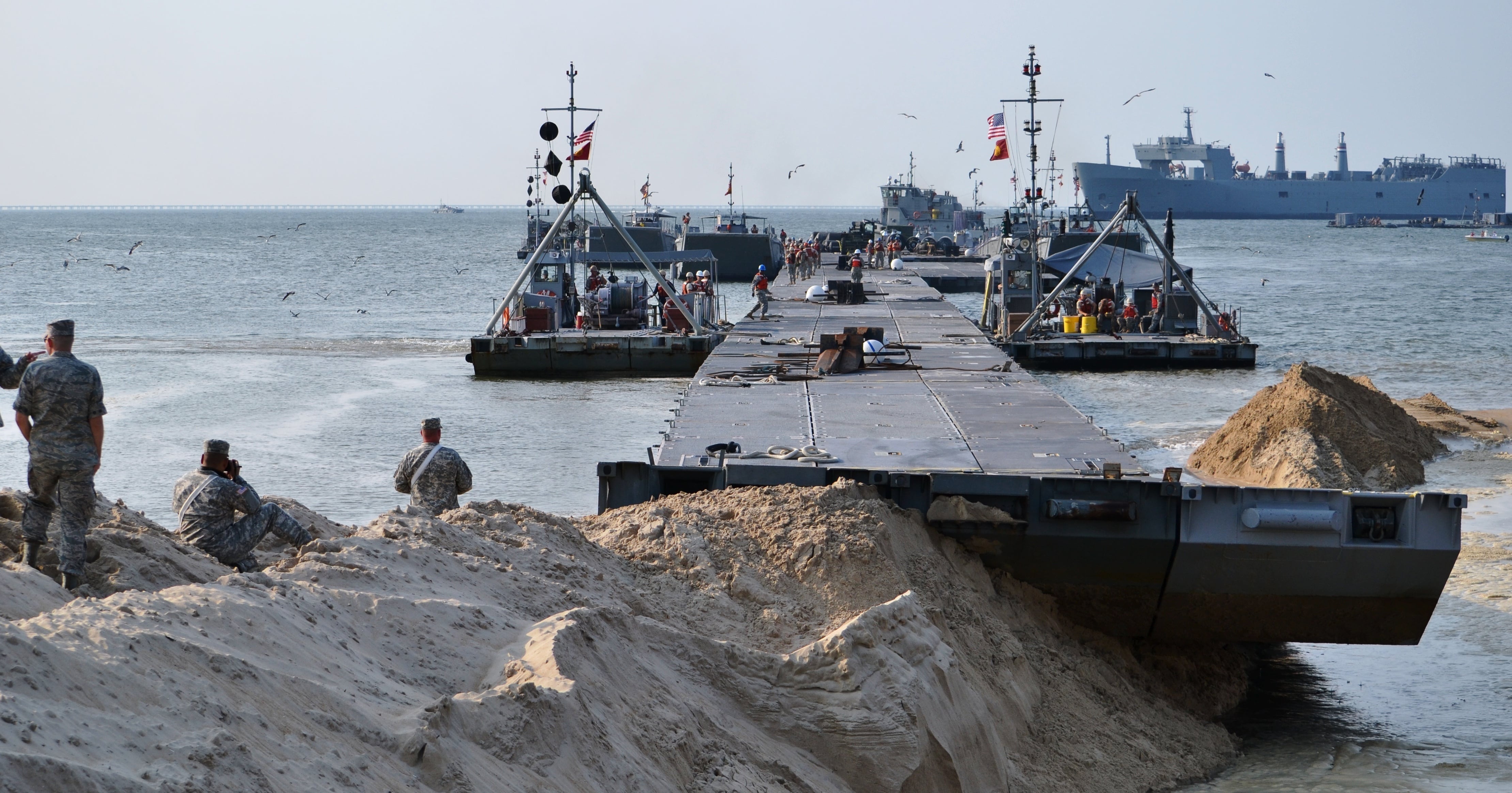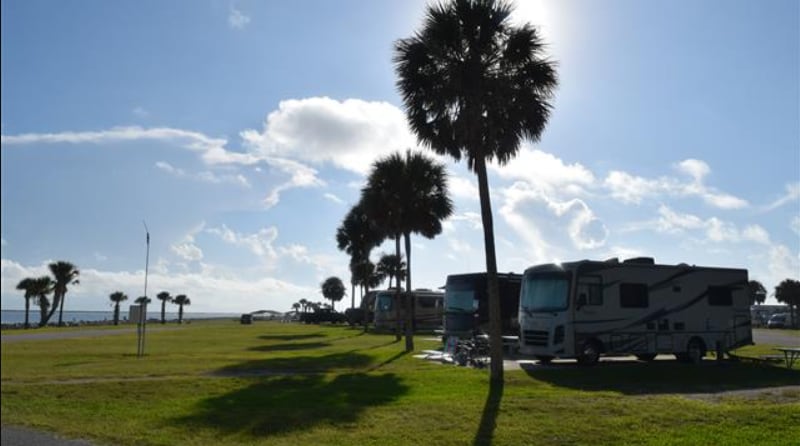WASHINGTON — The U.S. Navy’s top civilian bristled during congressional questioning Tuesday after Rep. Bradley Byrne, R-Ala., suggested the service was endangering shipyards and the broader defense industrial base by only requesting one littoral combat ship in 2019.
Byrne, whose district would be deeply affected if the Austal USA shipyard shuttered, accused Navy Secretary Richard Spencer and the service of slowing down the buying program and putting thousands of jobs in jeopardy.
“Since you’ve come on board, I haven’t seen you pick up the urgency on this program; in fact, I see the opposite,” Byrne said. “I think you are slowing down the program.”
Both shipyards have told Congress that if the Navy drops down to just one LCS, the yards would lay off thousands of workers and there would be a real risk that one or both of the LCS shipyards (located in Mobile, Alabama, and Marinette, Wisconsin) might have to close.
“You may say you are concerned about the enduring industrial base, but it seems to me that you are overlooking the industrial base this year,” the lawmaker said.
Spencer shot back, saying Byrne is off base and inviting him to discuss over lunch what the Navy is doing to rapidly move forward shipbuilding programs. Spencer held up the rapid acquisition plan for the LCS replacement, the FFG(X), as the prime example of where he was trying to move quickly.
“I couldn't disagree with you more on urgency," Spencer said. "We're going to bring the frigate on from first discussions in 2018, to contracts award in late 2019, and get that thing out the door three years after that. I'd like to see a comparison to any other platform we've done on that timeline. And that is what is happening under my tutelage, just so you know.”
Spencer then said he agreed that the Navy had to provide a steady flow of work to the industrial base but that he could only work under the budget provided to him. He added that he was looking to add new ships by finding savings in the budget, then asking Congress to reprogram money midcycle.
RELATED

All about that base
The exchange was in many ways a classic bit of Capitol Hill theater: a congressman from an affected district going to the mat for a program, and the service secretary defending the budget proposal and highlighting another priority.
But it was also a reminder of how contentious funding has been for the LCS in recent years.
Last year, the Navy proposed only one LCS, only requesting a second after an intervention from Trump administration trade hawk Peter Navarro, and President Donald Trump’s aides Stephen Miller and Rick Dearborn, who both have ties to Alabama politics through Attorney General Jeff Sessions.
A source with knowledge of the exchange told Defense News that preserving the industrial base was the “sole consideration” in adding the second LCS to the Navy’s budget request.
It’s possible that the Navy requested one LCS this year knowing that Congress would, as in years past, almost certainly add one or two more to the budget without the service asking. But it’s also true that the Navy is pushing as fast as it can to get to a future frigate, a platform it sees as more capable in a high-end fight with China or Russia.
After the administration added the second LCS to its budget request, then-acting Navy acquisitions boss Allison Stiller testified before Congress that “we desire to transition to the frigate as soon as possible,” but that the service recognized how critical it was to the industrial base to keep buying it.
The LCS was designed for low-end missions close to shore, rather than high-end warfare with near-peer competitors.
The Navy is moving fast on the FFG(X) program. In February, the service released a request for proposal to Huntington Ingalls, Lockheed Martin, Austal USA, General Dynamics Bath Iron Works and Italian shipbuilder Fincantierim asking them to submit mature designs over the next 16 months. After that, the Navy plans to drop down to a single detailed design and construction contract.
David B. Larter was the naval warfare reporter for Defense News.









